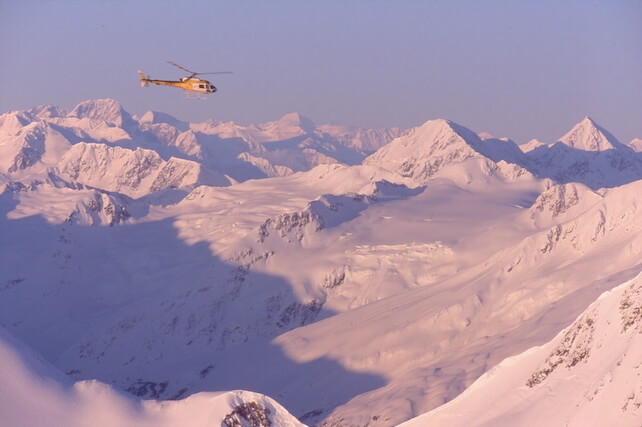
Alaska is different. You can actually see Russia from its north-west tip, and from a few other locations on higher land. Russia and Alaska are divided by the Bering Strait, some 89km at its narrowest. In the middle of the Bering Strait are two small islands: Big Diomede (Russian territory) and Little Diomede (part of the USA). At their closest, these two islands are less than 4km apart. It’s claimed that during the winter months, when the water between the two islands freezes, an “intrepid explorer” can walk from one to the other.
North-west of Canada, and completely separated from the rest of the USA, Alaska is the largest and most sparsely populated US state – and celebrated for its sometimes fearsomely fluted ski terrain. Denali National Park, in the Alaska Mountain Range, is home to Denali (formerly Mount McKinley), North America’s highest peak (6194m). Measured from base to peak, Denali is much taller than Everest – its base is only about 610 metres above sea level, while Everest’s base is around 4267 metres. This is typical of Alaska’s peaks – in general they rear up almost out of the sea, often giving them surprisingly massive vertical drops.
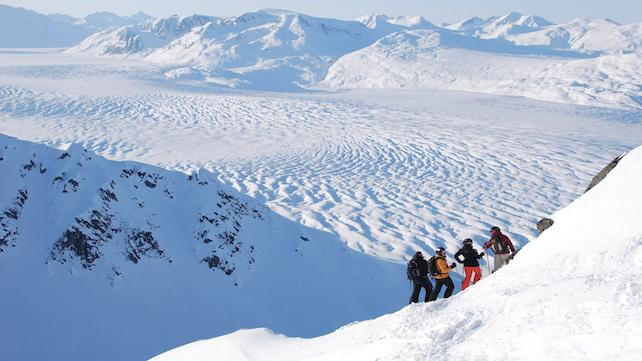
The Chugach Mountains of south central Alaska – which include Alyeska, the biggest and most popular ski area, in the town of Girdwood, an old gold-rush camp, plus the iconic Valdez heli-skiing area – have some of the state’s highest snowfalls, and, as a result, some of the biggest concentrations of glacial ice. Girdwood State Park is the third largest park in the US.
Mount Alyeska, some 43km from Anchorage, is a pretty challenging mountain, with a high percentage of advanced and expert runs. The name Alyeska is derived from is an archaic spelling of the Aleut (Inuit) word meaning “mainland”, “great country”, or “great land”. The skiing certainly offers the greatest choice – in-bounds resort skiing plus cat skiing and heliskiing with Chugach Powder Guides. Your call!
Chugach Power Guides have a great Plan B to cope with Alaska’s notorious mixed weather patterns: ‘all-weather’ snowcats. Unlike the helicopter, these cats are pretty much always on back-up duty even in the foulest of conditions. But some guests opt to cat-ski the whole week – it’s cheaper than heli-skiing.
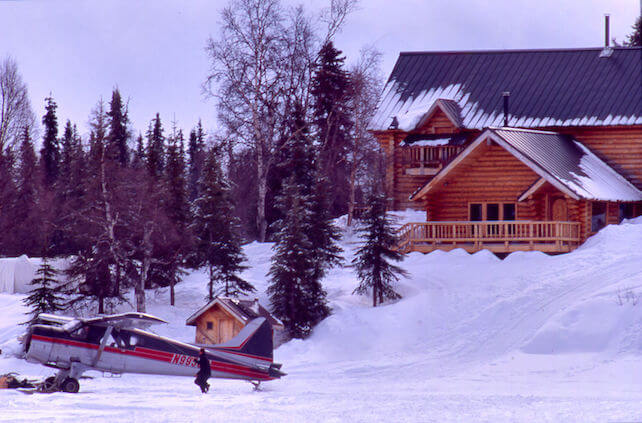
Says Charlie Brooksbank, MD of the London-based Pure Powder heli-skiing and off-piste ski company: “There’s nothing quite like heli-skiing in Alaska…table-top landings and deep-powder spines combine to make for an unforgettable (and at times nerve-jangling) heli-skiing experience. And the real plus with Chugach Powder Guides is the ‘double redundancy’ of having cat-skiing and resort skiing as a back-up to ensure that even when the heli can’t fly you can still be out skiing.”
In-bounds, with a vertical drop of 747m, Alyeska resort has five chair-lifts, one high-speed tram serving 786 trails. At the base of the tram and close to the slopes is the modern 300-room Hotel Alyeska, complete with spa, a saltwater swimming-pool and an award-winning restaurant. If you ask the front desk nicely, they’ll wake you up in the night if there’s a good view of the Northern Lights.
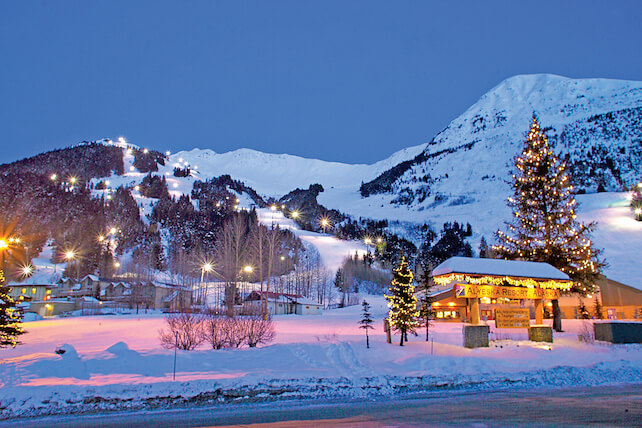
Valdez, a six-hour drive to the east, has some of Alaska’s best heli-skiing, but that’s not to say that Alyeska’s heli-skiing and cat-skiing is not superb too. And if you’re not that keen on steep and deep, the valley floor offers Nordic skiing, snowshoeing, and dog-sledding.
Doug Coombs, the late and much lamented former world extreme skiing champion and founder of Valdez Heli Ski Guides used to say: “I tell all skiers before they die they must experience a week in Valdez – it is like nothing else in the world.
“Valdez is certainly the Mecca for great steep powder skiing, but it’s not completely true that the terrain is mostly extreme. Ski films always show the radical slopes skied by the professionals, but we have numerous long gentle runs, up to a mile long. About 50% of the runs are 35-50° and the rest are 20-40°.”
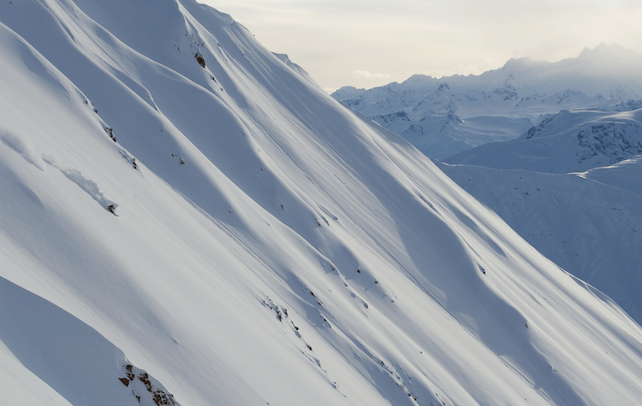
Nevertheless, the large and fairly nondescript frontier town of Valdez, perched on the shores of Prince William Sound in the Gulf of Alaska attracts many of the world’s hard core skiers and snowboarders.
In the early days, safety briefings were carried out in true Alaskan fashion. Legend has it that the pilot carried a revolver, cowboy-style, at his waist. Anyone foolish enough to ignore his instructions not to stray near the lethal, rotating blades while being dropped off or picked up had a warning shot fired at their feet – a very effective technique but unlikely to find its way into today’s safety manuals.
From Anchorage, a short float plane hop to Judd Lake reaches Tordrillo Mountain Lodge, a luxury retreat featuring two separate wilderness lodges, co-owned by 1994 Olympic downhill skiing champion Tommy Moe.
Tommy’s taxis fly people into half a million hectares of heli heaven in the shadow of North America’s highest peak, Denali (Mount McKinley), at 6190m. The heavily glaciated Alaska Range is on a grand scale and offers endless terrain options to keep skiers challenged, with runs that top out at 2286m and more stable weather than other Alaskan spots.
With its northern latitude, daylight hours restrict daylight skiing in Alaska till March, but quickly give way to long days in April and May. As the skiing season draws to a close, Alaska gains an extraordinary five to six minutes of daylight each day!
For more information and booking contact Pure Powder, Chugach Powder Guide’s UK booking agents.

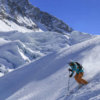
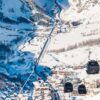
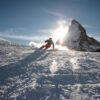
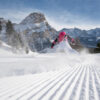
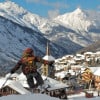
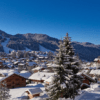
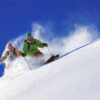
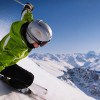
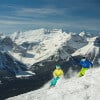
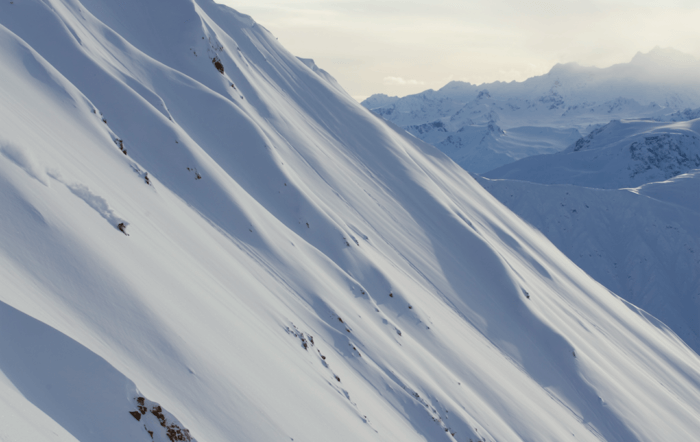
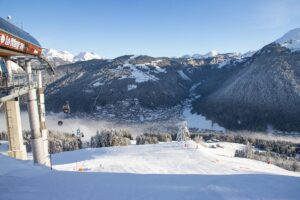
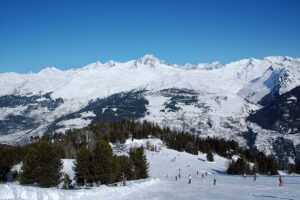
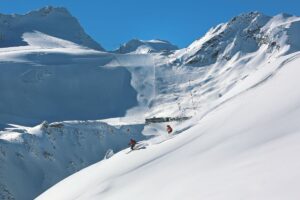
Add Comment